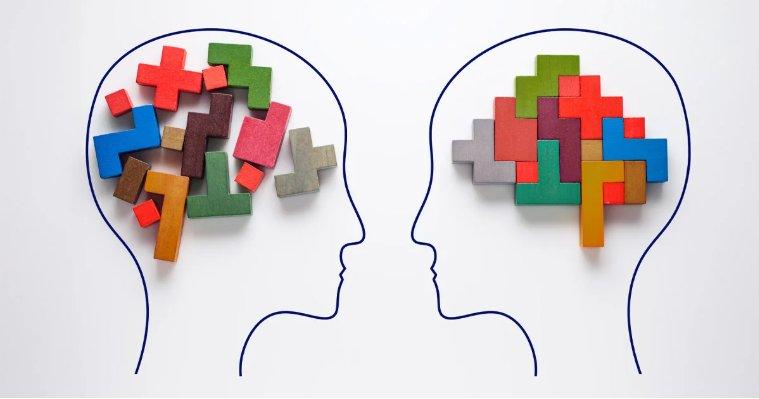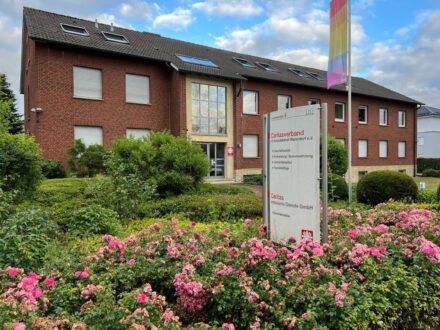
Why Accessibility Is No Longer an Option – But an Obligation
Public sector websites and mobile applications are already required to meet WCAG 2.1 Level AA, under a separate EU directive (Directive (EU) 2016/2102). This presents significant challenges for organizations and web developers.
Around 20% of users have difficulties using the web. But accessible websites benefit people without disabilities too. Think of video subtitles – perfect when you’re in a quiet zone. And don’t forget: even search engines like Google benefit from well-structured, accessible websites.
What are Web Content Accessibility Guidelines?
Not all websites are required to follow WCAG, but when they are – due to public sector obligations or EAA compliance – they typically follow the European standard EN 301 549, which currently references WCAG 2.1 Level AA.
Note: Even when not legally required, striving for accessibility is still a worthwhile goal — it ensures that no one is excluded and improves the overall user experience for everyone.
These guidelines help ensure content is accessible to everyone, based on four core principles:
- Perceivable:
Information must be available in multiple ways – such as alt text for users with visual impairments. - Operable:
The site must work without a mouse – for example, using only a keyboard. - Understandable:
Clear language and consistent interfaces are essential – especially for users with cognitive disabilities. - Robust:
The website must function flawlessly on all devices and platforms – including assistive technologies.
A New Approach for Web Agencies
These regulations demand a fundamental shift in how web and design agencies operate. Accessibility should not be an afterthought – it must be a core part of every digital project, technically, communicatively, and creatively. Clients should expect their website or application to meet established accessibility standards by default.
Standardization and Design Systems
To effectively build accessible websites, standardization is essential. Web developers and designers can collaborate within a design system that uses fixed guidelines and reusable components. This means accessibility is integrated from the start of the development process. It prevents issues down the line – and leads to more efficient and sustainable digital products.
About OffeneGemeinden
In 2015, veenendaal.nl launched as the first “OpenGemeenten” (Open Communities) website. It remains fully up to date to this day. We now support 33 municipalities and deliver 180 websites. Since 2023, our successful concept is also available in Germany under the name “OffeneGemeinden.”
Since the 2015 launch of OpenGemeenten, not a single municipality has switched to another provider – something we’re incredibly proud of! (And no, we don’t do vendor lock-in;)
Our Approach to Web Accessibility
Accessibility isn’t a luxury – it’s a duty. Websites must be accessible to everyone, regardless of limitations. For us, it’s more than just ticking boxes on a checklist. We create websites that are broadly usable and focused on user-friendliness for all.
This means we continuously research and learn how to present content better – and make it more accessible to diverse audiences. Using a monorepo, we deploy improvements to our platform every Tuesday night. These updates instantly become available on more than 180 TYPO3 websites. That way, every municipality benefits from a current, well-maintained site – without having to invest constantly in new developments.
Benefits of Standardization
Our component library includes all building blocks needed for an accessible website. From buttons to navigation systems and forms – everything is designed with usability, security, and accessibility in mind.
Thanks to standardization, we can quickly respond to new developments and customer needs. This keeps websites up to date – without needing to build entirely new systems every few years.
In addition, a standardization approach offers more advantages:
- Separating technology from styling allows for a flexible development process – where design and content can be handled in parallel.
- Innovations implemented by one municipality immediately become available to all that use our concept.
- Regular pre-audits help us identify and resolve accessibility issues early – for all websites on our platform.
- If accessibility or technical problems arise, we can respond swiftly – and roll out improvements comprehensively.
Standardization is not a limitation – it’s a strength.
It enables fast, stable, and large-scale development – without the restrictions and dependencies of fully customized solutions. Standardization isn’t boring – the building blocks may be the same, but what you build with them is unique.
Future-Proof Websites
Our commitment to accessibility and open source means we are constantly investing in the future of government websites. By working closely with municipalities and using innovative technologies, we create websites that are accessible for everyone – now and in the future.
Accessibility is not just a legal obligation – but also an opportunity to create inclusive, user-friendly, and future-proof digital experiences. Developers and clients who invest in accessible solutions today will lead the way tomorrow.
TYPO3 GmbH
Emanuel-Leutze-Str. 11
40547 Düsseldorf
Telefon: +49 211 205436-0
Telefax: +49 211 205436-50
http://typo3.com
![]()




